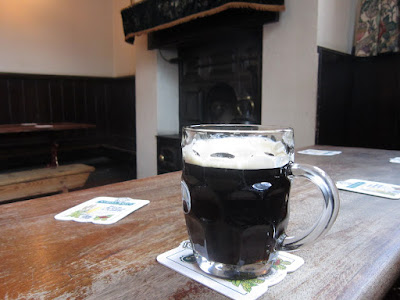I read a dozen books this year, mostly in short bursts rather than spread across the twelve months, including a few I've been meaning to get round to for a long time.
The Hard Life/At Swim Two Birds/The Dalkey Archive/The Third Policeman/The Poor Mouth by Flann O'Brien
I've read quite a bit of Flann O'Brien before, especially his Myles na Gopaleen columns in the Irish Times, and his novels are an extension of those, mixing Gaelic mythology, surrealism, philosophy and wit, including the archetypal Dublin character The Brother. Naturally pubs and boozing feature quite heavily too.
The Dead by James Joyce
Back to Dublin again for this long and ethereal short story which I wrote about here.
The Duel by Joseph Conrad
Another long short story, about two French army officers fighting a series of duels throughout the Napoleonic Wars, which was made into a memorable film by Ridley Scott in the late seventies.
Catherine, or The Bower by Jane Austen
I thought I'd read everything by Jane Austen until I came across this unfinished teenage novel by her. It's often included amongst her juvenilia, but the themes and settings are much closer to her later published works.
Munichs by David Peace
I've read Peace's other two football novels, The Damned United about Brian Clough's six week spell at Leeds and Red or Dead about Liverpool manager Bill Shankly, but this is understandably much darker than either, creating a claustrophobic atmosphere in the offices beneath the stands at Old Trafford, the rainy streets of Manchester and the snowbound Munich hospital and hotel where the survivors of the 1958 air crash are taken.
Siddhartha by Hermann Hesse
I read this story about a young Indian man's encounters with the Buddha and lifelong journey of self discovery after seeing an interview with former Chelsea and now US women's football coach Emma Hayes in which she said that she gives it to new players when they join the squad.
My Century/The Call of the Toad by Günter Grass
Two later, and less regarded, works by my favourite German writer, although, like his Crabwalk which I read last year, I enjoyed them both in different ways, the former a fragmented series of snapshots spanning each year in twentieth century German history and the latter a heartfelt piece about Polish-German reconciliation set in his native Baltic city, Danzig/Gdansk.













